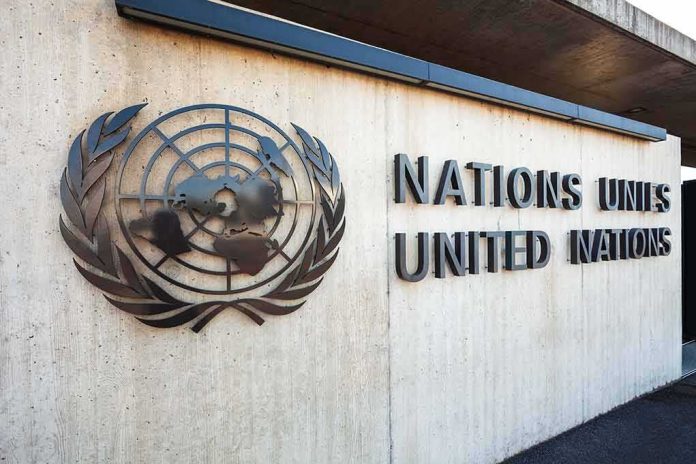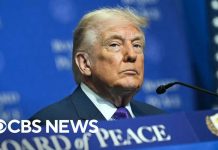
The United Nations Security Council just handed Donald Trump something no previous president has achieved: international legal authority to reshape the Middle East’s most intractable conflict zone.
Story Snapshot
- UN Security Council formally adopts Trump’s comprehensive Gaza peace plan with legal mandate
- Russia and China abstained rather than vetoing, allowing unprecedented international backing
- Plan extends beyond ceasefire to complete reconstruction framework for war-devastated Gaza
- Trump administration gains rare multilateral legitimacy for Middle East peace initiative
Historic Diplomatic Achievement Breaks Decades of Deadlock
The Security Council’s adoption of Trump’s Gaza peace plan represents a seismic shift in international diplomacy. For decades, American presidents have struggled to gain meaningful UN backing for Middle East peace initiatives, typically facing vetoes from Russia or China. The abstentions from both powers signal a remarkable diplomatic calculus that prioritizes regional stability over traditional geopolitical opposition to U.S.-led initiatives.
This vote provides Trump with something his predecessors never possessed: a legal framework endorsed by the international community’s most powerful body. The implications extend far beyond symbolic support, creating binding obligations for member nations and establishing precedents for future conflict resolution in the region.
Beyond Ceasefire: A Comprehensive Reconstruction Vision
Trump’s plan distinguishes itself from previous peace attempts by addressing Gaza’s post-conflict reality with concrete rebuilding mechanisms. After two years of devastating warfare, the enclave requires complete infrastructure overhaul, economic revitalization, and governance restructuring. The UN mandate provides international legitimacy for coordinating these massive undertakings through American leadership.
The comprehensive approach tackles fundamental issues that temporary ceasefires traditionally ignore. Housing reconstruction, utility restoration, healthcare system rebuilding, and educational infrastructure development all receive framework support under the Security Council resolution. This holistic vision addresses root causes rather than merely managing symptoms of the prolonged conflict.
Strategic Abstentions Signal Shifting Global Dynamics
Russia and China’s decision to abstain rather than exercise their veto power reveals calculated strategic thinking about Middle Eastern stability. Both nations recognize that continued Gaza devastation threatens broader regional security, potentially destabilizing energy markets and trade routes crucial to their economic interests. Their abstentions suggest pragmatic acceptance of American leadership when it serves mutual stability goals.
The abstentions also demonstrate Trump’s diplomatic effectiveness in framing the initiative as humanitarian reconstruction rather than partisan political maneuvering. By emphasizing Gaza’s civilian population needs and regional security benefits, the administration successfully positioned the plan as serving universal interests rather than exclusively American or Israeli objectives.
Implementation Challenges and Unprecedented Opportunities
The Security Council mandate creates both opportunities and obligations for the Trump administration. International legal backing provides leverage with regional actors who previously dismissed American peace initiatives as biased or illegitimate. However, this same legitimacy creates expectations for measurable progress and accountability to international oversight mechanisms.
The plan’s success depends on coordinating multiple stakeholders with conflicting interests and historical grievances. Palestinian leadership, Israeli government cooperation, regional Arab state involvement, and international donor coordination all require delicate balancing. The UN mandate provides framework authority but cannot eliminate fundamental political obstacles that have stymied previous peace efforts for generations.
Sources:
In Major Breakthrough, U.N. Security Council Adopts U.S. Peace Plan for Gaza









